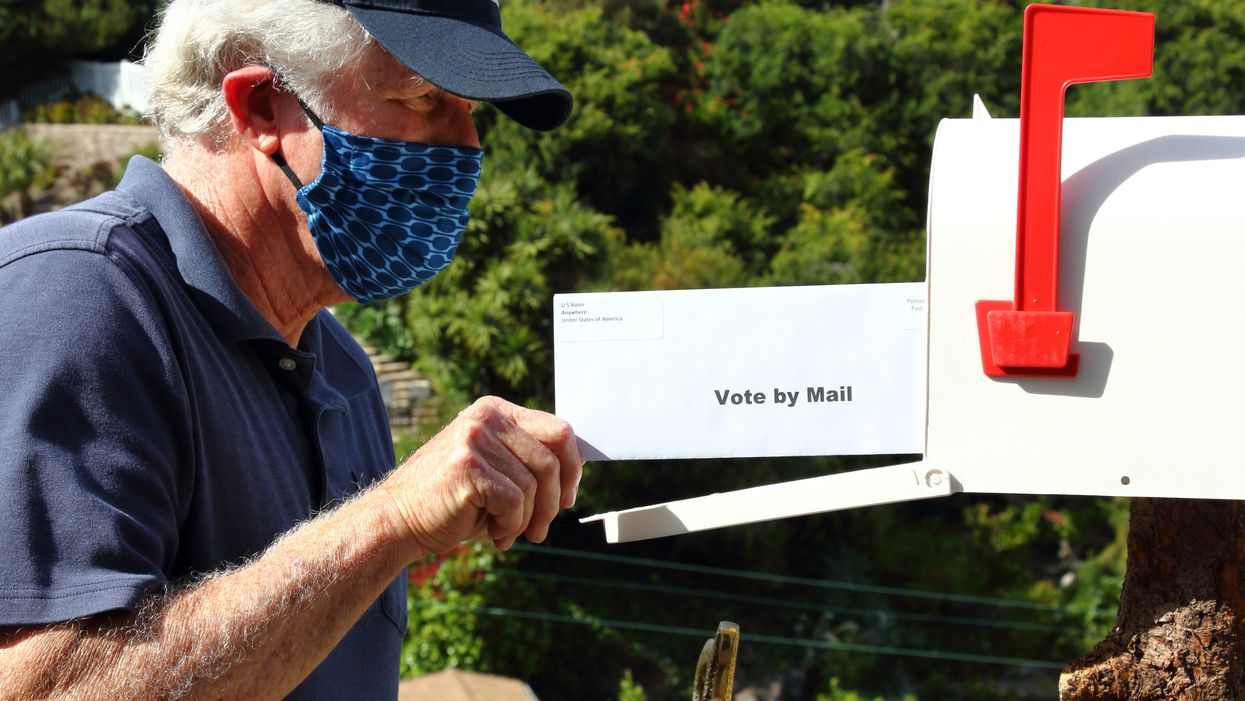The challenges from this year's surge of mail voting continue to mount.
At least 130,000 primary ballots across the country have arrived too late to be counted, while tens of thousands more have been tossed because of missing signatures or other flaws — a 1 percent overall rejection rate in primaries so far that, while relatively small, could still prove decisive in a close election.
And then there are the envelopes that arrive on time and are completed correctly, but somehow don't get tabulated, leaving elections in limbo and local clerks embarrassed, although free of accusations of fraud. That's now happened twice this month alone — just in towns along Interstate 90 in the Northeast.
First was the local tax referendum in Grafton, 50 miles west of Boston, which took more than a week to conclude as officials haggled over the handling of 202 mailed-in envelopes discovered in the town clerk's vault after the initial count. (The final result improved the tax increase's margin of victory by four votes.)
Now, there's the case of the once-tied Republican primary for an opening on the bench that handles divorces and child custody disputes in Herkimer County, a rural and deeply wooded sliver of upstate New York halfway between Albany and Syracuse.
Three weeks after the initial count showed 2,291 votes for both would-be Family Court judges, attorney Thad Luke is claiming victory by five votes. His win was sealed after county election officials realized they had never seen any absentee votes from the hamlets of Norway and Russia (really) — and eventually located a cache of 30 ballots.
They were at the county courthouse, in "the secure room where the ballots were stored under a dual control lock system," the board said Friday. "The uncast ballots were still in their envelopes in the tray. These absentee ballot envelopes that had been cut open, but the ballots themselves had not been removed from the envelopes and counted."
The loser, municipal Judge Mark Rose, was as gracious as he could be about the oversight — which he described as understandable given the influx of mailed ballots in the June 23 primary because of the coronavirus pandemic. But he nonetheless said he would consider suing to seek a recanvassing of the result.
"They're very hardworking people in the Board of Elections and this was thrown on them," he said. "In a democracy such as the United States, when there is such a small margin, there should be an automatic recount."
At least 65,000 absentee or mail-in ballots have been rejected because they arrived past the deadline in 17 presidential primaries so far, NPR calculated this week, with rejection rates ranging from 2 tenths of 1 percent in Mississippi to nearly 6 percent in Virginia.
That report did not include California, where state records showed 70,330 ballots were rejected either because they were postmarked after primary day or arrived more than three days later. The Associated Press reported that the overall rejection rate was 1.5 percent, the highest in a statewide election since 2010, once ballots tossed for missing or indecipherable signatures or other problems were added to the total.




















